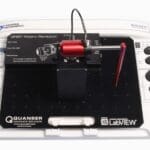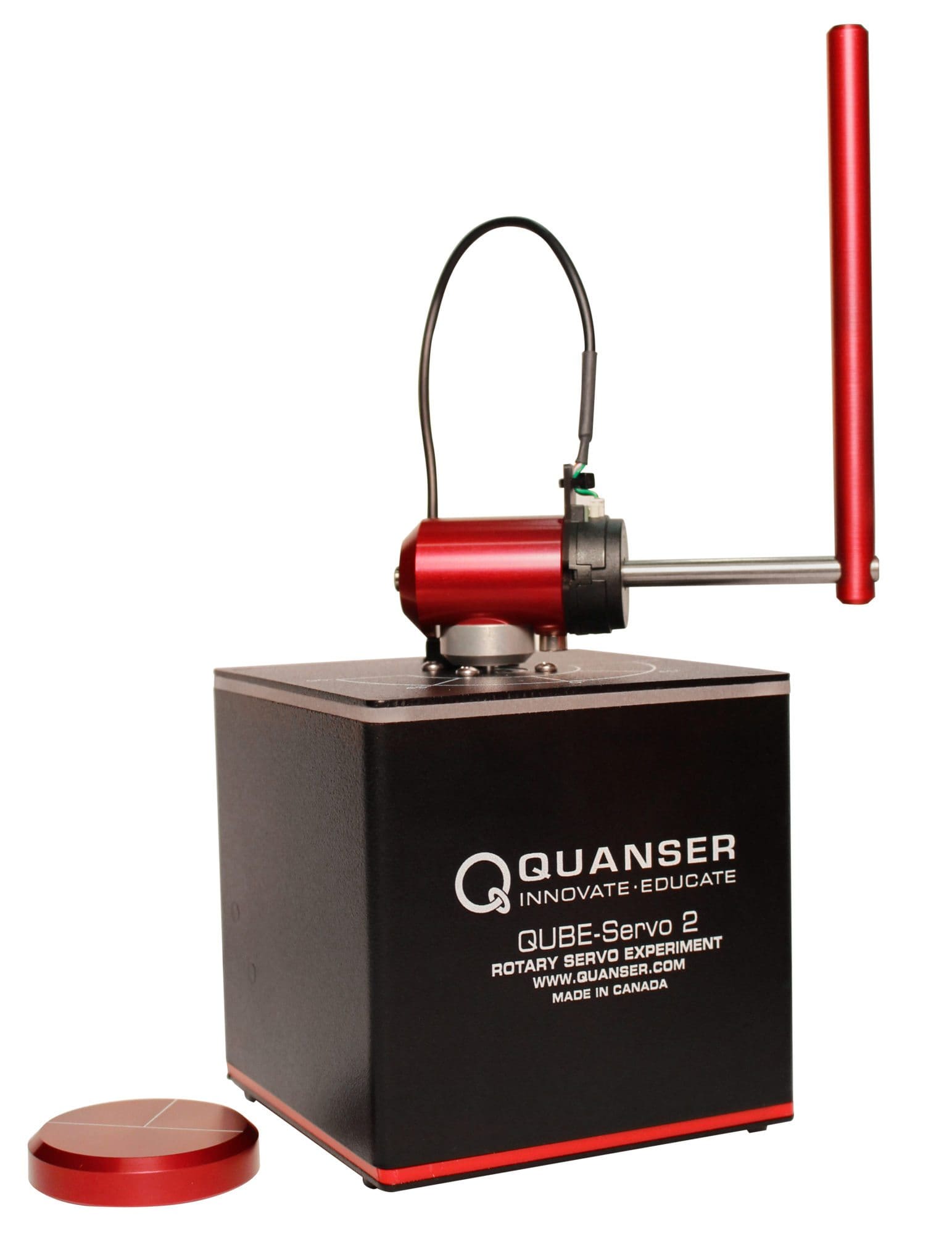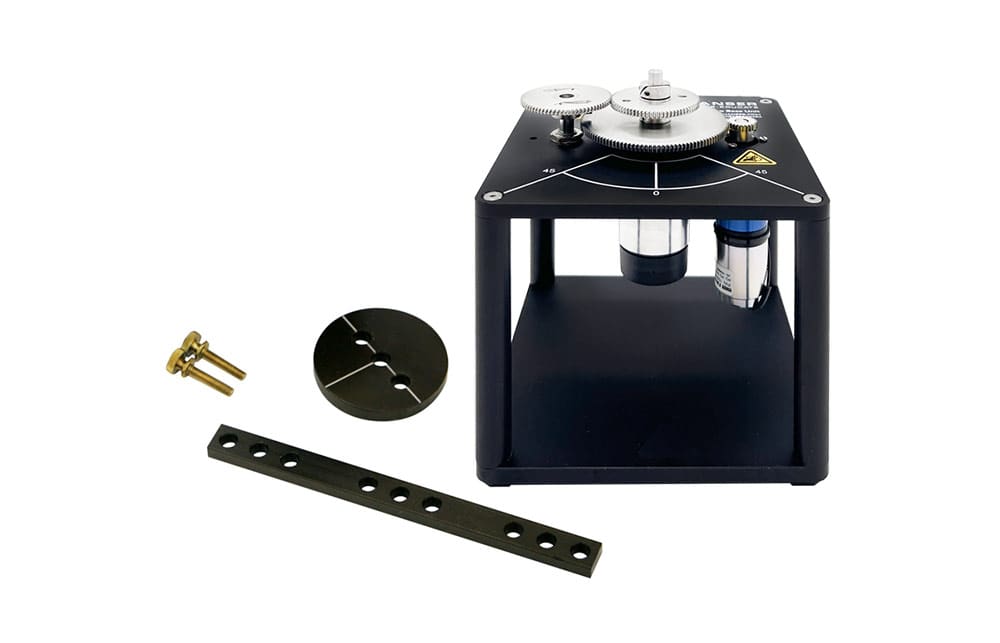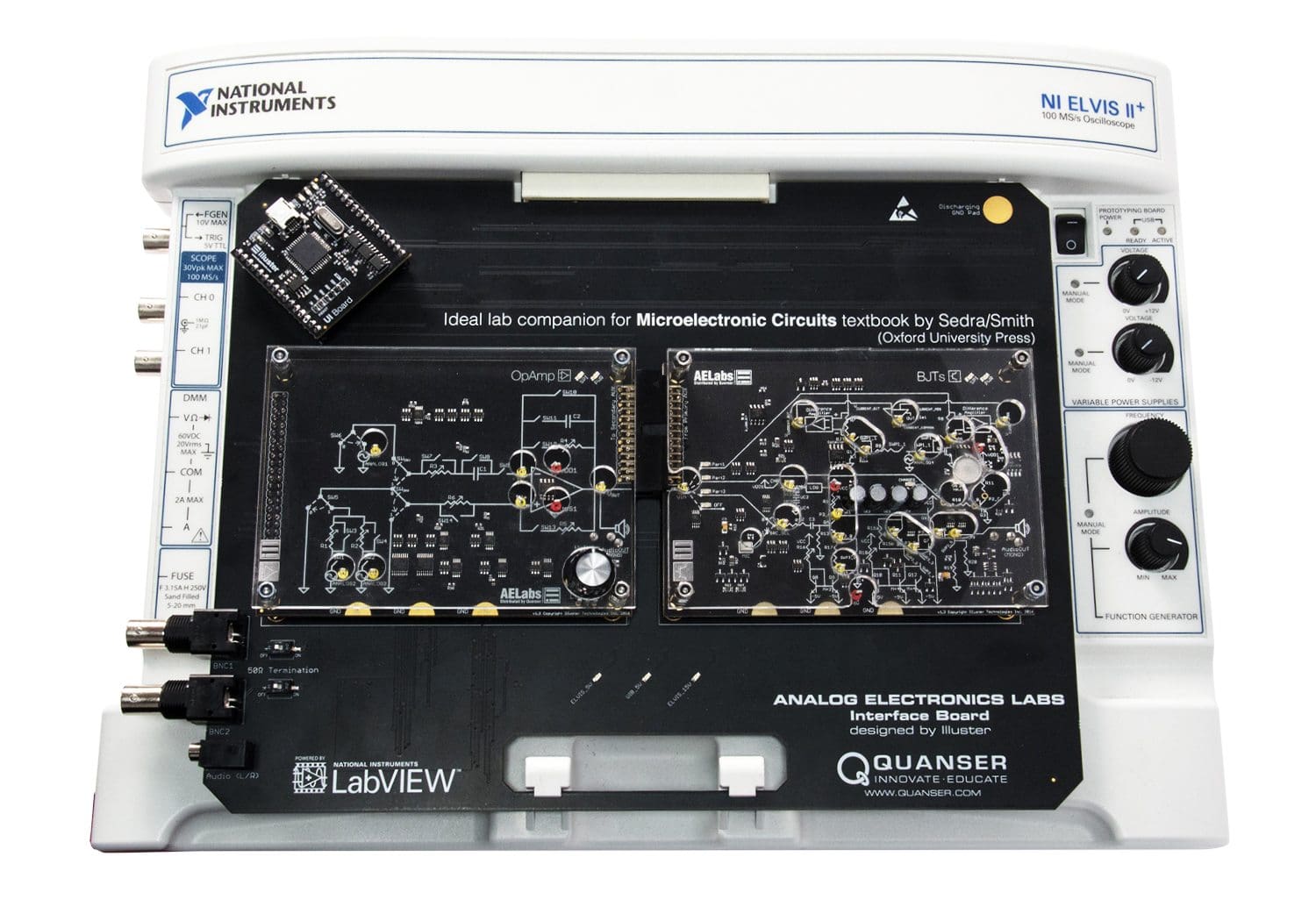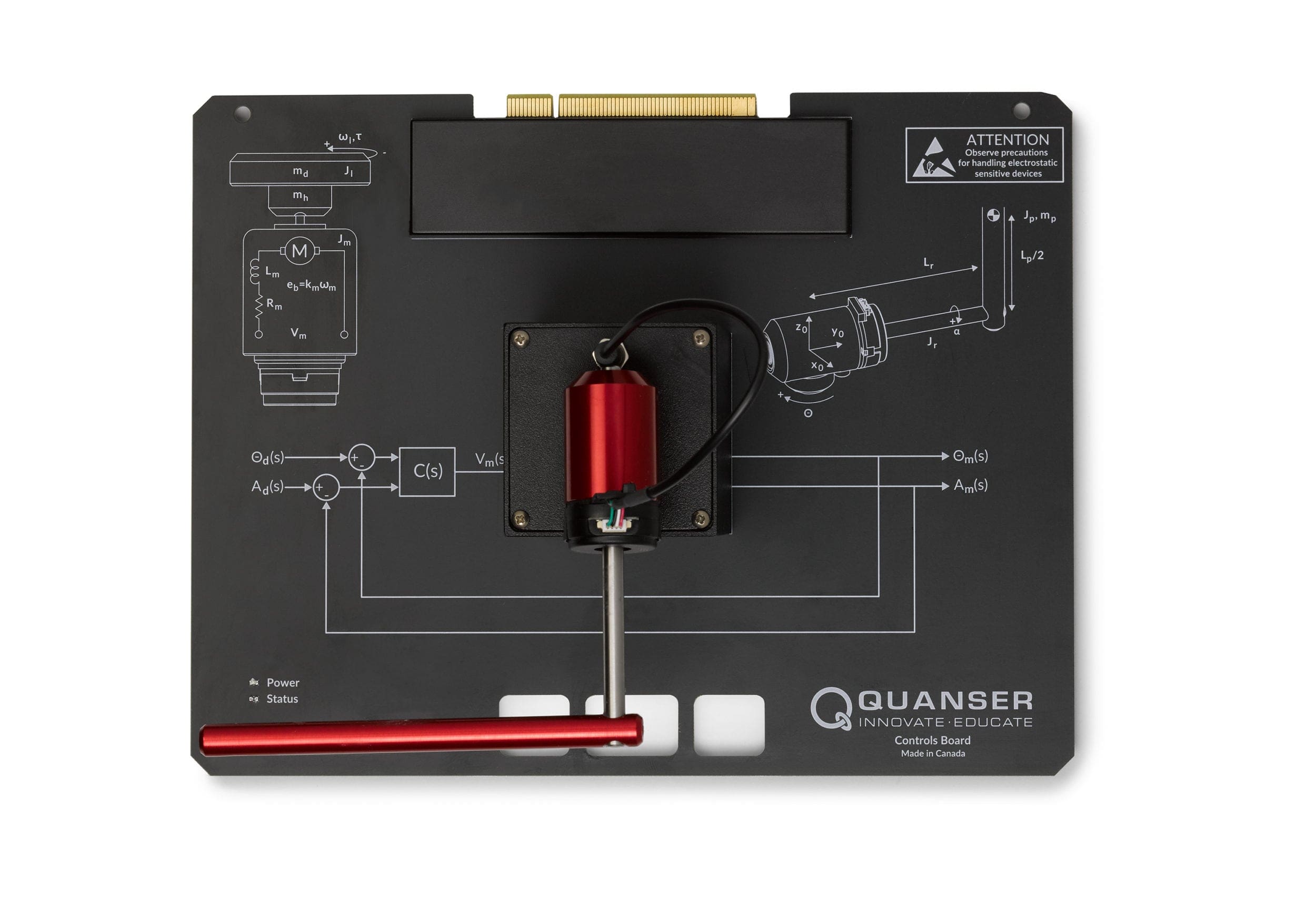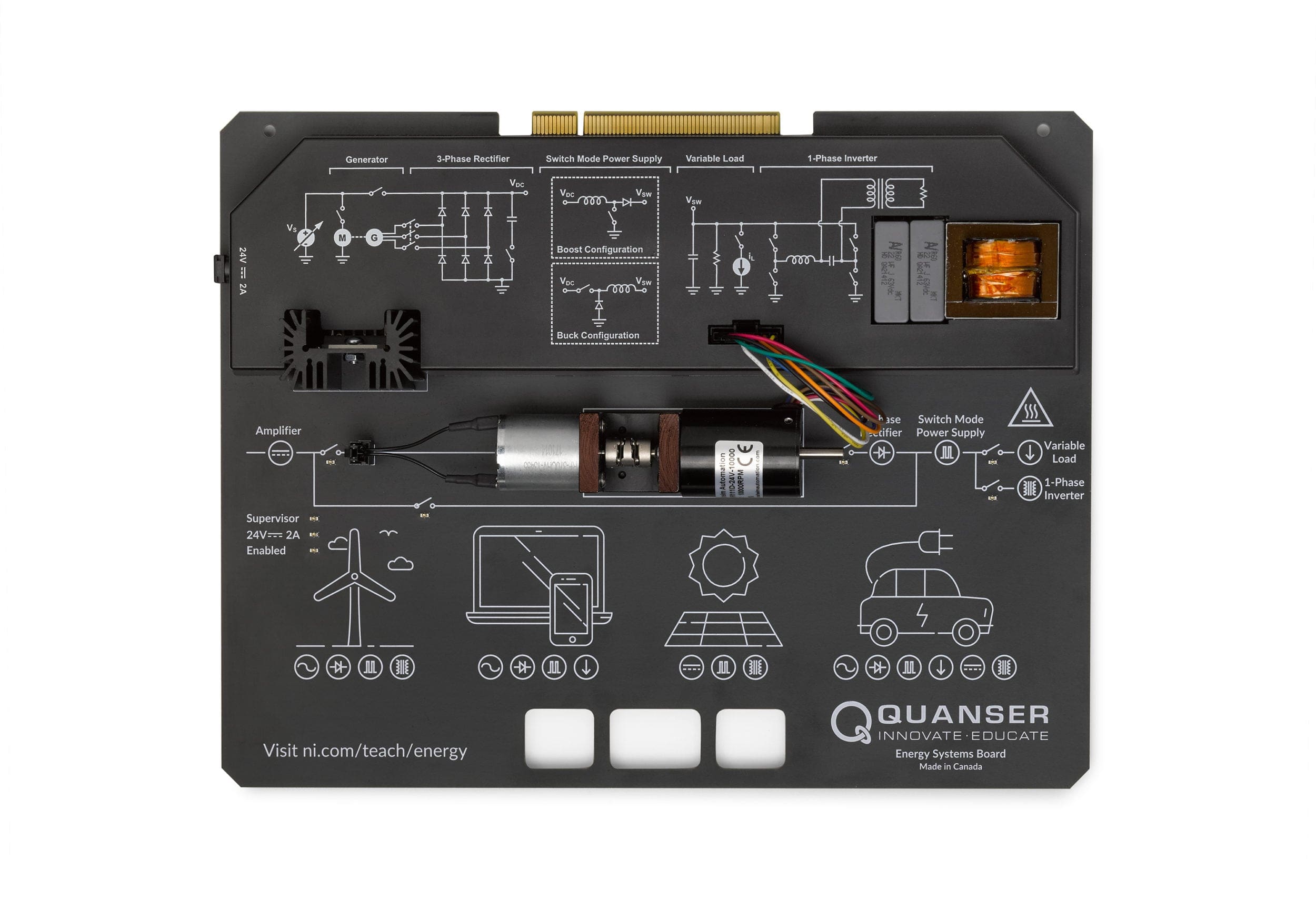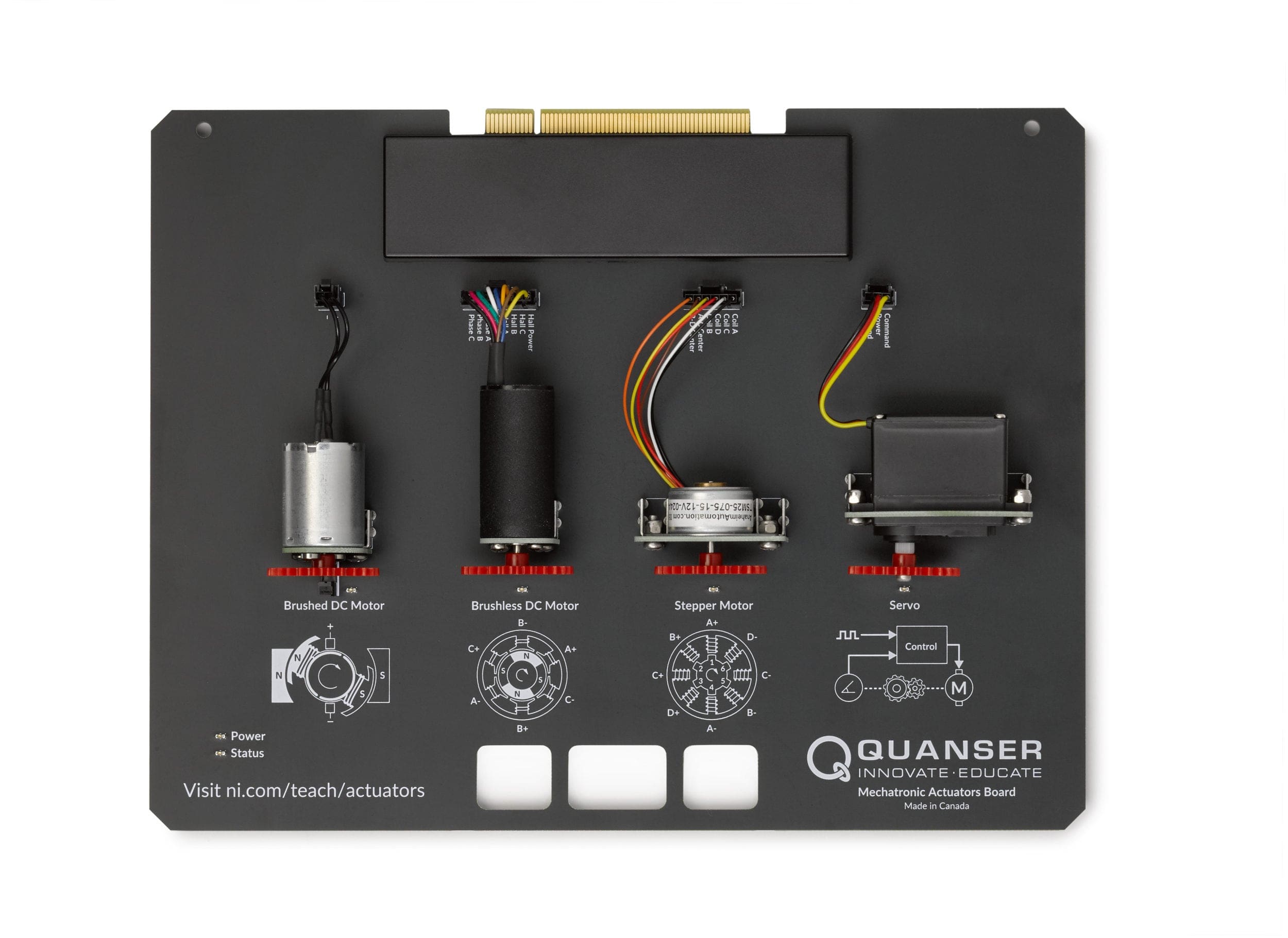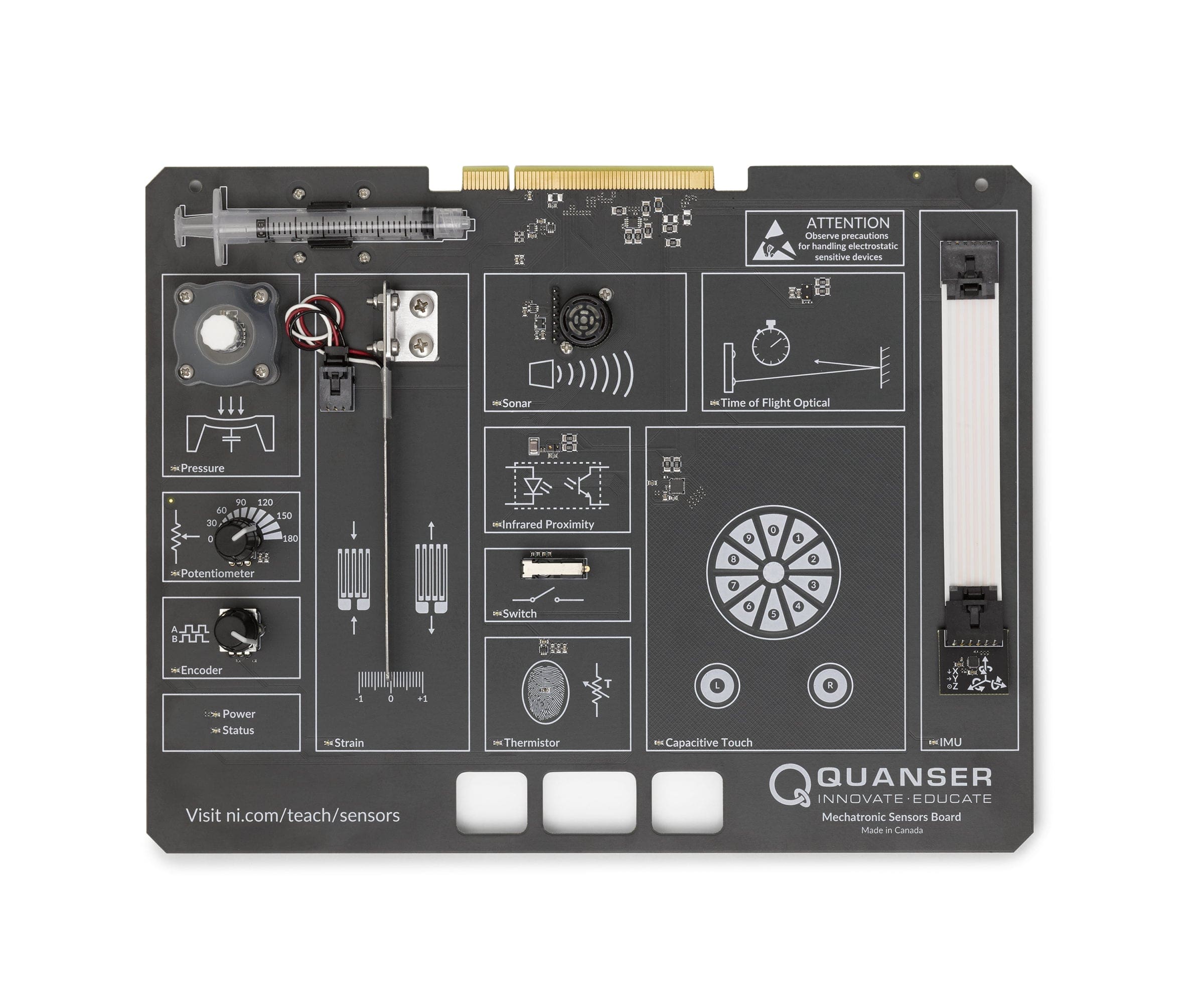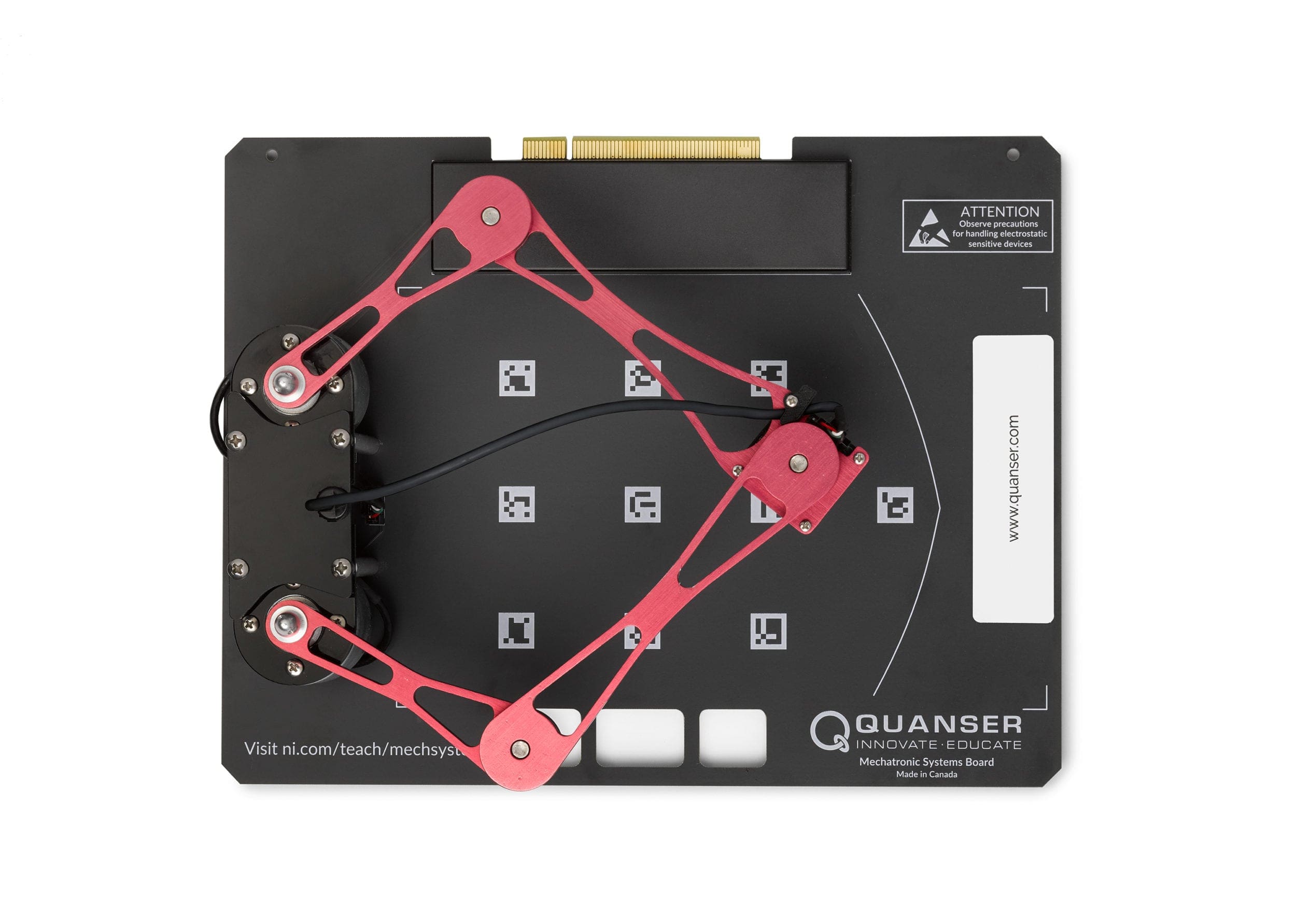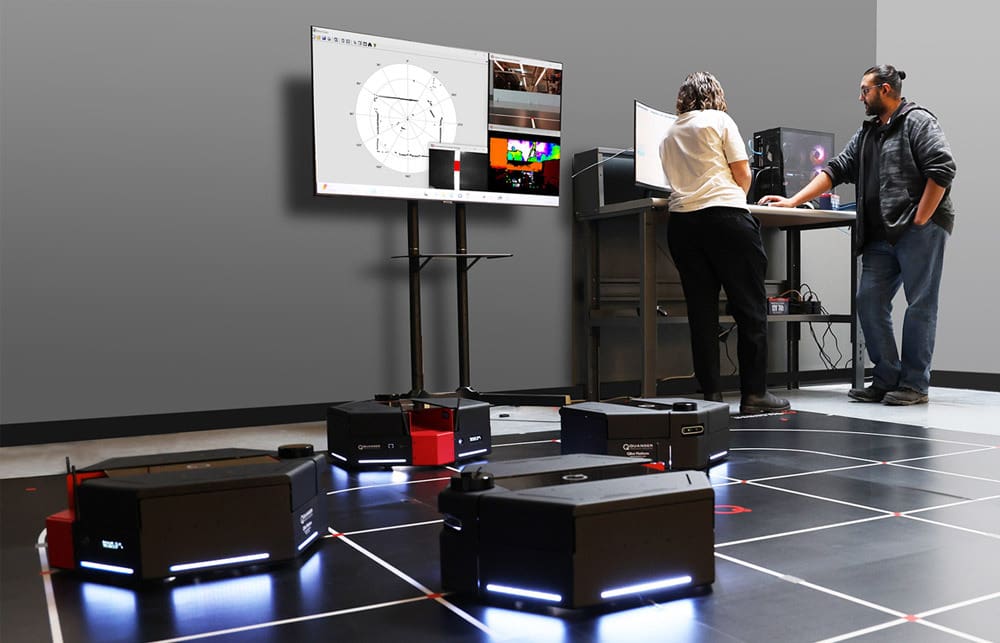QNET 2.0 Rotary Pendulum Board
This product is no longer available.
The Quanser QNET 2.0 Rotary Pendulum board is a versatile servo system designed to teach and demonstrate the fundamentals of inverted pendulum balance and control. Designed exclusively
for NI ELVIS platform and LabVIEW™ software, the system can easily be configured to demonstrate various control techniques, including LQR and hybrid swing up.
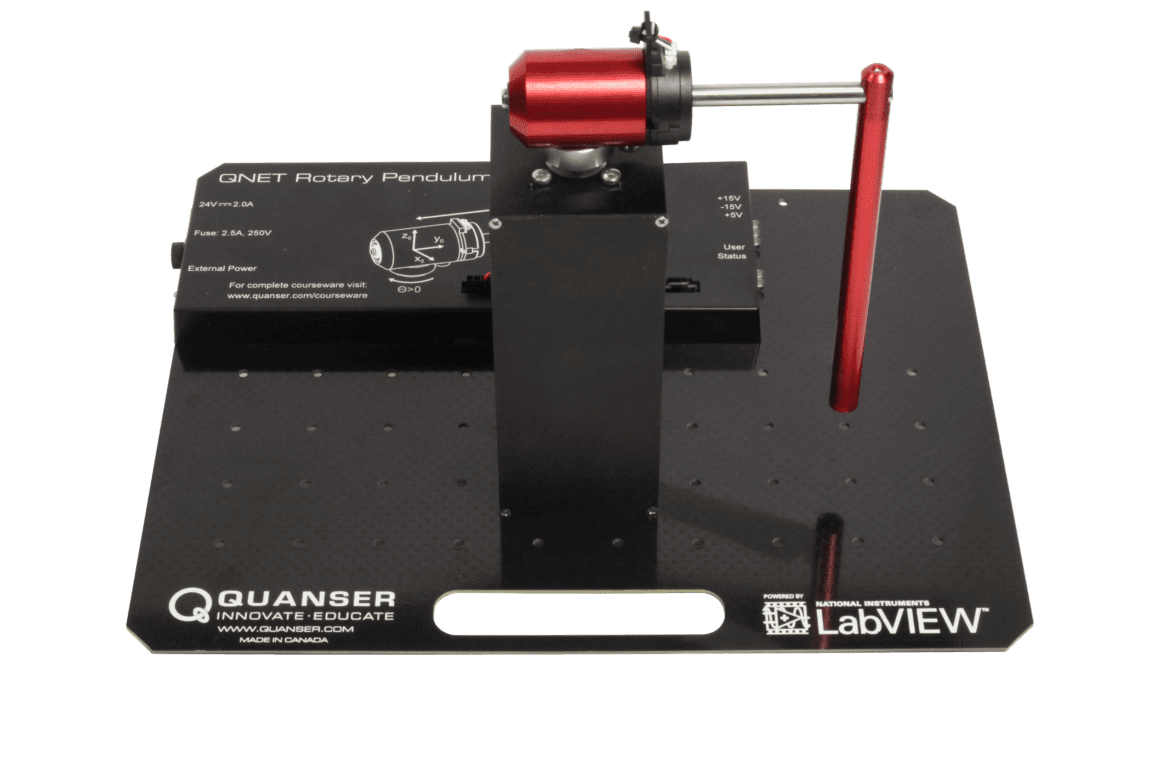
Product Details
The QNET 2.0 Rotary Pendulum board consists of a direct-drive DC motor mounted vertically in a
solid aluminum frame and a pendulum suspended on a horizontal axis at the end of an L-shaped arm. The arm is connected to the motor shaft and pivots between ±180 degrees. The control variable is the input voltage to the pulse-width modulated (PWM) amplifier that drives the motor. The output variables are the angle of the pendulum and the angular position of the DC motor, measured by single-ended rotary encoders.
- Durable DC servo motor
- Built-in PWM amplifier with linear response
- High resolution optical encoders to sense to sense motor and pendulum positions
| Rotary pendulum link mass | 24 g |
| Rotary pendulum link length | 12.9 cm |
| Motor nominal input voltage | 18 V |
| Motor nominal speed | 3050 rpm |
| Motor torque constant | 0.042 Nm/A |
| Motor terminal resistance | 8.4 Ω |
| Rotor inertia of the motor | 4.0 x 10-6 kg.m² |
| Encoder line count | 512 lines/rev |
| Encoder line count in quadrature | 2048 lines/rev |
| Encoder resolution (in quadrature) | 0.176 deg/count |
| Amplifier type | PWM |
| Amplifier peak current | 2.5 A |
| Amplifier continuous current | 0.5 A |
| Amplifier output voltage | ± 24 V with 42% duty cycle limit (± 10 V) |
- System modeling
- Parameter estimation
- State-feedback balance control
- LQR optimization
- Non-minimum phase
- Friction compensation
- Non-linear swing up control
- Energy-based control
- Hybrid control
The following additional components are required to complete your workstation, and are sold separately:
For LabVIEW
- NI ELVIS II+

